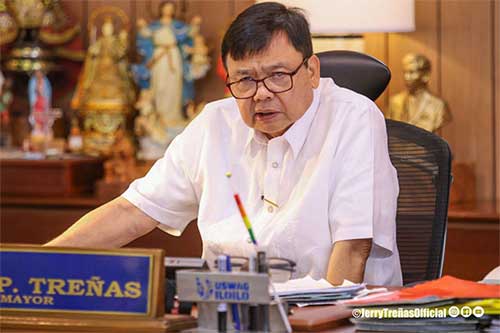
By Rjay Zuriaga Castor
A city councilor has backed the president’s call to review the Electric Power Industry Reform Act of 2001 (EPIRA) following the power outages that hit Panay Island earlier this year.
City Councilor Romel Duron, chairperson of the committee on energy and public utilities of the Sangguniang Panlungsod, told Daily Guardian that the government is “helpless” to intervene when power outages occur.
“With all the brownouts happening over Iloilo City, the government is helpless to intervene except to ask the National Grid Corporation of the Philippines (NGCP) to fix the transmission lines and complete their proposed projects,” he said.
In the review, among the amendments proposed by Duron is the imposition of penalties on the NGCP, particularly for delays in implementing projects outlined in their Transmission Development Plan 2022-2040.
Among the long-delayed projects of the NGCP is stage 3 of the Cebu-Negros-Panay (CNP) project, which was completed in April this year despite its supposed original completion date of December 2020.
The project is seen to ensure resiliency and operational flexibility in power transmission on the islands of Visayas.
“With that delay, we have been suffering from prolonged power outages,” he said.
Earlier in January, Panay Island experienced a massive power outage, reportedly resulting in a revenue deficit of PHP 1.5 billion in Iloilo City.
Following the outage, the city council approved a resolution authored by Duron calling for amendments or the repeal of EPIRA.
The resolution specifically sought the amendment of Section 34 of the EPIRA law, citing that it is “onerous” and “favorable” to NGCP.
The section explicitly institutionalizes the passing of every cost incurred by utility companies, even if it results from faulty business decisions, their operating costs, and other costs not directly related to power consumption by end-users.
The amendment of the EPIRA law gained ground again after President Ferdinand “Bongbong” Marcos Jr. urged Congress to determine the necessity to review the law during his third State of the Nation Address.
Marcos’s call to review the 23-year-old law cited the burdensome electricity prices affecting the public.






















